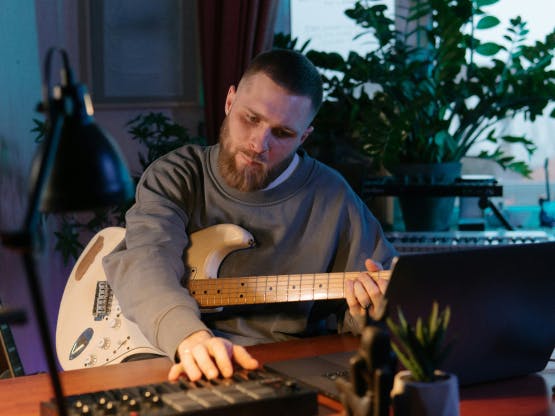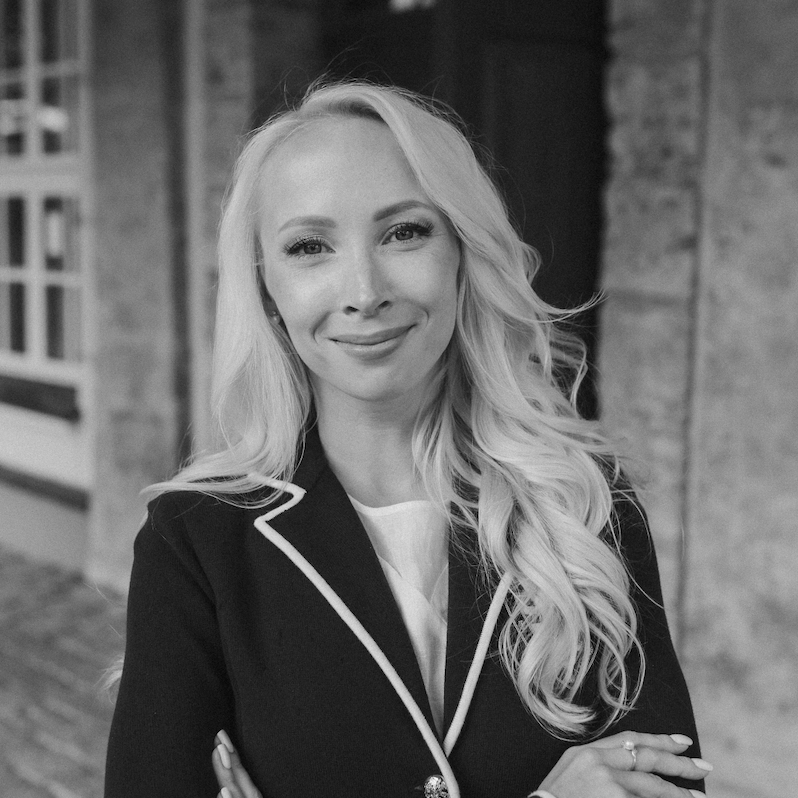On an ordinary spring day in 2023, a song shook the music industry to its core. It wasn’t the lyrics or melody – those were catchy enough – but the fact that the artists supposedly performing it had nothing to do with its creation. The track, titled “Heart on My Sleeve,” sounded uncannily like a collaboration between megastars Drake and The Weeknd. In reality, it was the handiwork of an anonymous TikTok producer called Ghostwriter977, who used an AI trained on those artists’ voices and styles to generate the song. Millions of fans streamed the eerily convincing fake; for a moment, it blurred the line between human artistry and algorithmic mimicry. But that moment didn’t last. As the track went viral, the legal alarms at Universal Music Group – Drake and The Weeknd’s label – rang loud. Within days, platforms like TikTok and Spotify had taken the song down in response to Universal’s copyright complaints. The “Heart on My Sleeve” saga is more than just a music industry anecdote – it’s a harbinger of the complex legal battles brewing in the age of advanced algorithms.
Ghosts in the Machine: Creativity Meets Complexity in Court
Ghostwriter977’s AI-generated hit raised questions nobody could ignore. Was this unauthorized use of Drake’s and The Weeknd’s voices a form of theft, or just clever homage? Who owns a song with no human singer – and could the song itself earn copyright protection? These questions have no easy answers under current law. In fact, U.S. copyright authorities have already staked out a position that purely AI-created works, lacking a human author, cannot be copyrighted. But the flip side is equally thorny: if an AI-generated track leans heavily on a real artist’s style or training data, could that violate the artist’s rights? Universal’s takedown of “Heart on My Sleeve” was enabled by a small detectable sample in the track – a “producer tag” embedded in the AI’s training material – that gave the label a clear copyright hook. Yet, had the AI been more perfect and left no trace of the original recordings, the legal basis for removal would have been much shakier.
This ambiguity reveals a deeper problem – not just what AI copies, but who gets to accuse and enforce it. In recent months, a wave of independent music creators, particularly those experimenting with AI tools, have faced false copyright claims on platforms like YouTube. These are not remix pirates or impersonators – they are original creators livestreaming their production process, only to receive takedown notices from algorithmic enforcement systems. One common story involves a creator being flagged by Content ID for their own track, because an AI-generated model triggered a false positive or matched improperly catalogued training data.
As one artist noted in a YouTube discussion thread about this growing problem: “I’ve been copyright claimed several times on videos of recorded livestreams of me creating the actual tracks that I’m being claimed with. It’s a disaster.” Other creators describe being flagged for synthetic vocals that sound like someone else’s, even when generated legally or with licensed models. The root issue? Big tech platforms have deployed automated copyright enforcement systems like Content ID that prioritize claimant protection over creator due process. These systems operate at a massive scale – yet rarely allow real-time rebuttal or human review before a strike is issued.
This ecosystem fosters a kind of platform-driven copyfraud, where companies or third-party firms file automated claims, creators lose monetization or visibility, and appeals drag on for weeks. The legal deck is stacked: under current DMCA provisions, platforms are incentivized to act on takedown requests immediately to maintain safe harbor status, even when claims are baseless. A 2024 article in the Journal of Intellectual Property Law refers to this phenomenon as “Copyfraud 2.0,” highlighting the misuse of copyright law to suppress rather than protect creativity.
For AI audio creators, this adds yet another layer of vulnerability. Even if they use properly licensed synthetic voices or train models on their own vocal data, the likelihood of false flags and wrongful takedowns has created a chilling effect. In an age where voice itself can be both a medium and a liability, platform policy is increasingly as important as legislation.
Black Box Algorithms and the Fight for Accountability
The music industry is no stranger to legal innovation – or to legal inertia. Now, it finds itself at a critical inflection point where AI-generated vocals, algorithmic attribution, and automated enforcement mechanisms are colliding in unprecedented ways. And with that comes a battle not only over rights and royalties, but over the very concept of authorship and identity in an AI age.
Consider the increasing use of black-box AI systems by digital distribution services, labels, and streaming platforms. These tools assess copyright claims, match audio fingerprints, and determine royalty allocation. Yet their decisions are often made without explanation, and in many cases, without human review. Artists, producers, and even publishers have begun questioning the legitimacy of these opaque processes – especially when false claims lead to lost income, copyright strikes, or shadowbans.
Take, for instance, the lawsuit filed in 2024 by independent label Concord Music Group against an AI audio-matching service deployed by a major distributor. Concord alleged that their artists’ earnings were being misdirected to other parties due to algorithmic errors, and that attempts to challenge the allocations were ignored. The complaint cited “negligent automation practices” and a violation of contractual audit rights – a case still pending, but already echoing throughout legal departments across the music business.
Even legacy organizations are being forced to adapt. The Recording Academy and the Music Publishers Association have both convened task forces on AI ethics and attribution, urging lawmakers to require explainability and auditability for AI systems that determine revenue flows. Meanwhile, organizations like SAG-AFTRA, ASCAP, and BMI are lobbying for new provisions that ensure human creators retain control and royalties – even if AI is used to mimic or remix their work.
One bright spot: legal departments at major record labels are beginning to incorporate AI literacy into their A&R and licensing teams. Universal Music Group’s new “Voice Rights” division, created in 2025, now reviews contracts for AI clause inclusion – spelling out exactly who can use an artist’s vocal likeness and under what terms. Warner Music has reportedly piloted watermarking systems that embed metadata into AI-generated vocals, ensuring they can be traced and verified.
The role of law firms specializing in music IP is expanding rapidly. Firms like Pryor Cashman and Manatt, Phelps & Phillips are now dedicating entire practices to navigating AI and music law. Their work ranges from drafting AI-specific clauses in publishing contracts to defending artists whose voices have been cloned without consent. Several are now advocating for what they call the “Performer Identity Protection Act” – a proposed U.S. federal law that would extend personality rights specifically to voice and style likeness in machine-generated works.
Rewriting the Rules of Creativity
Ultimately, the success of AI in music will not be measured by its technical achievements alone, but by whether it strengthens or erodes the structures we’ve built to protect creative labor. One recent case illustrates this tension: when Warner Music discovered a series of AI-generated tracks replicating the vocal likenesses of its frontline artists, the label didn’t just issue takedown notices – it launched a top-down internal audit. According to an internal memo shared with legal teams, Warner’s General Counsel called for a systemic review of how vocal identity is protected in licensing contracts moving forward. “We’re not anti-AI,” the memo read, “but we’re unapologetically pro-artist – and that means the human voice must not be treated as raw data.” That stance set a tone industry-wide, prompting other labels to reassess boilerplate clauses around vocal likeness, session recordings, and third-party data usage. A case in point: when Warner Music discovered AI-generated tracks circulating online using vocal likenesses of its signed artists without approval, the label’s General Counsel issued a statement underscoring that “innovation must always respect human artistry.” Warner didn’t just issue takedown requests – they followed up with a new internal policy requiring all A&R and licensing contracts to address potential future uses of AI voice models, even if none are currently planned. It was a proactive, human-first stance that other major labels soon began to mirror. We are the architects of this future – not just as developers, performers, or executives, but as a global community of listeners and creators. It is up to us to decide whether AI serves as a tool for empowerment or exploitation.
Ethical frameworks, legal innovation, and business strategy are all critical – but our collective values must lead the way. We must resist the temptation to offload accountability to machines and instead design systems with ourselves in mind – systems that protect artistic expression, preserve human dignity, and reward contribution fairly.
Because in the end, it’s not just about what AI can do with our voices. It’s about what kind of music industry – and what kind of world – we want to build with our own.
Continue reading our blog to learn more.




